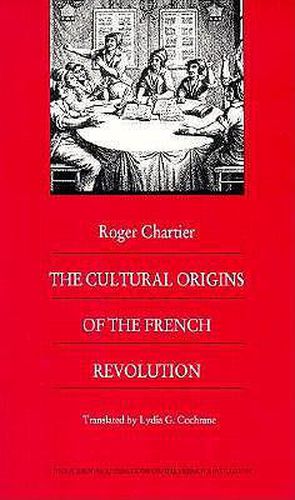Readings Newsletter
Become a Readings Member to make your shopping experience even easier.
Sign in or sign up for free!
You’re not far away from qualifying for FREE standard shipping within Australia
You’ve qualified for FREE standard shipping within Australia
The cart is loading…






Historian Roger Chartier, part of a school now at work refashioning the Annales tradition, analyzes the causes of the French Revolution not simply by investigating its cultural origins , but by pinpointing the conditions that made it possible because conceivable . Chartier has set himself two important tasks. First, while acknowledging the seminal contribution of Daniel Mornet’s Les Origens Intellectuelles de la Revolution Francaise (1935), he synthesizes the half-century of scholarship that has created a sociology of culture for Revolutionary France, from education reform through widely circulated printed literature to popular expectations of government and society. Chartier goes beyond Mornet’s work, not be revising that classic text but by raising questions that would not have occurred to its author. Chartier’s second contribution is to re-examine the conventional wisdom that there is a necessary link between the profound cultural transformation of the 18th century (generally characterized as the Enlightenment) and the abrupt Revolutionary rupture of 1789.
$9.00 standard shipping within Australia
FREE standard shipping within Australia for orders over $100.00
Express & International shipping calculated at checkout
Historian Roger Chartier, part of a school now at work refashioning the Annales tradition, analyzes the causes of the French Revolution not simply by investigating its cultural origins , but by pinpointing the conditions that made it possible because conceivable . Chartier has set himself two important tasks. First, while acknowledging the seminal contribution of Daniel Mornet’s Les Origens Intellectuelles de la Revolution Francaise (1935), he synthesizes the half-century of scholarship that has created a sociology of culture for Revolutionary France, from education reform through widely circulated printed literature to popular expectations of government and society. Chartier goes beyond Mornet’s work, not be revising that classic text but by raising questions that would not have occurred to its author. Chartier’s second contribution is to re-examine the conventional wisdom that there is a necessary link between the profound cultural transformation of the 18th century (generally characterized as the Enlightenment) and the abrupt Revolutionary rupture of 1789.